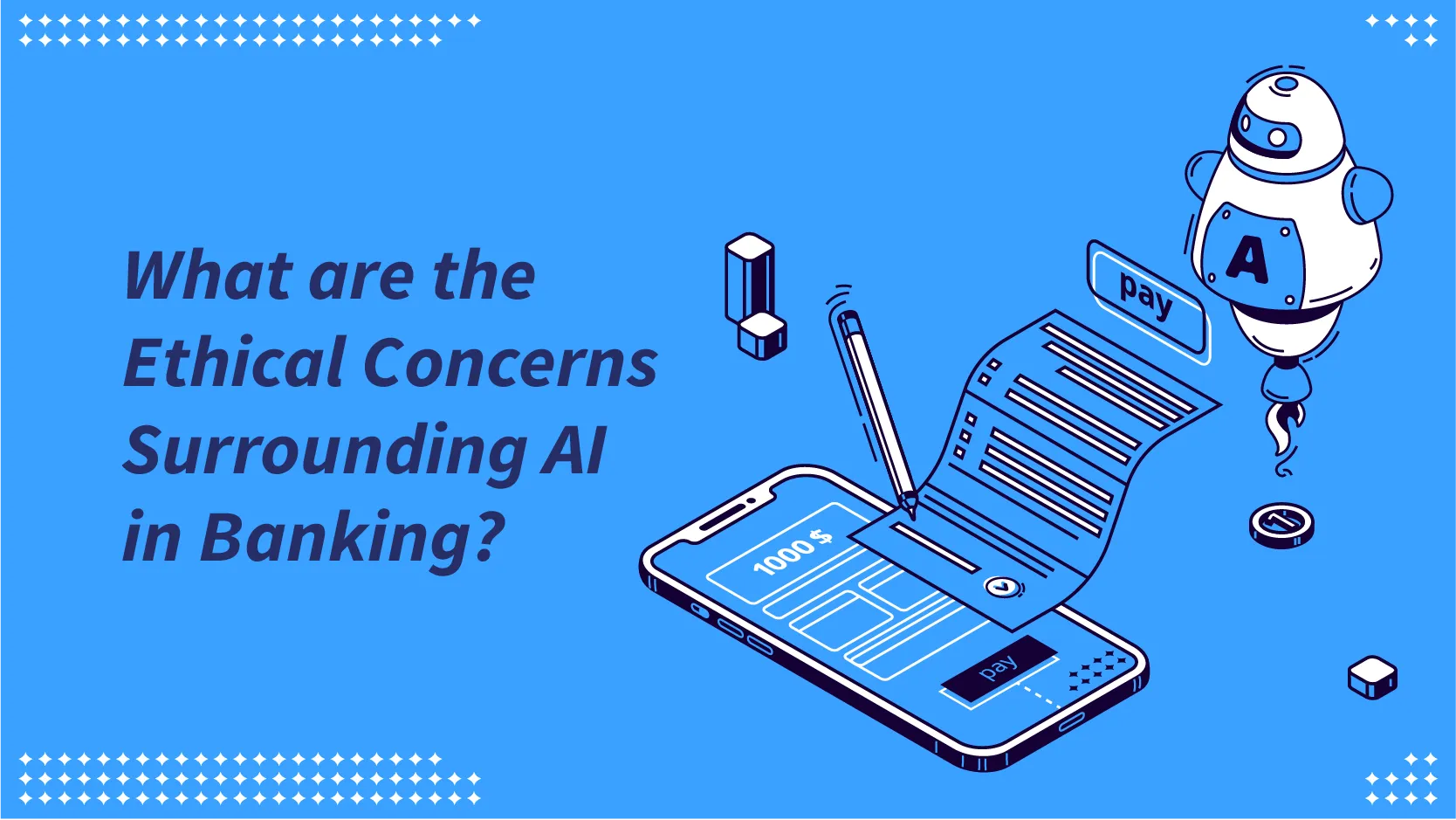Artificial intelligence (AI) is proving to be a game-changer for the banking industry. This technology and its applications are offering new ways to enhance operations and elevate customer experiences. When banks leverage AI, they can streamline internal processes and develop smarter, more personalized customer service work operations. Additionally, these tools help improve fraud detection or manage money and investments more effectively.
According to a report by Accenture titled ‘Banking in the age of generative AI,’ nearly 22% – 30% potential productivity improvement can be seen for early adopters over the next three years.
To stay competitive and keep pace with evolving technology, banks have actively embraced digital transformation. This shift helps them offer better services and strengthens their position in a rapidly changing landscape. The emergence of AI applications has made this digital shift even more critical. It holds the potential to reshape the entire financial sector, influencing which companies succeed in the long run. In this blog, let us have an overview of AI in banking and ethical considerations while adopting AI in the financial sector.
Also Read: 10 Best Practises to Achieve Financial Automation Using ERP software
What are AI Applications in Banking & Finance?

Generative AI and RPA (Robotic Process Automation) are transforming the banking and finance industry in numerous ways. These technologies streamline traditionally complex tasks and drive efficiency. AI-powered chatbots like ChatGPT are revolutionizing customer service and machine learning models are improving fraud detection and personalizing the banking experiences. The potential of AI applications is vast. Banks are leveraging AI to forecast financial trends, tailor services to individual preferences, and create a more personalized customer journey. Here are a few applications of AI in banking:
1. Data Privacy
With increasing data privacy concerns, banks face challenges in utilizing customer data. Synthetic data provides a solution, enabling banks to create shareable datasets without compromising privacy. This synthetic data is invaluable for training machine learning models to assess credit eligibility and determine loan amounts, ensuring that customer information remains protected.
2. Sentiment Analysis
Natural Language AI helps banks analyze sentiment in text, such as investment research or chat data, to gauge emotional opinions. This analysis can inform decision-making and offer a deeper understanding of market trends.
3. Anomaly Detection & Anti-Money Laundering
AI in banking helps detect anomalies whether fraudulent transactions, financial crimes, or cyber threats, which has become crucial. In anti-money laundering efforts, AI helps banks pinpoint suspicious activity with greater precision, allowing faster response times. Generative AI also plays a role in improving risk management by analyzing historical data to detect potential financial risks and alerting banks before issues escalate.
4. Speech Recognition
AI-driven speech recognition tools can convert customer conversations into text, offering valuable insights from interactions like contact center calls. These insights allow banks to enhance customer service by understanding patterns and improving response quality.
5. Personalized Recommendations
AI applications deliver highly personalized recommendations for financial products and services by analyzing customer journeys and financial goals. This includes everything from banking offers to risk-adjusted investment opportunities. AI’s ability to generate synthetic data and recognize patterns helps banks forecast financial outcomes and simulate hypothetical scenarios for better decision-making.
6. Translation & Marketing
Generative AI in banking enables financial organizations to offer multilingual content, from financial news to app interfaces, making it easier to reach global audiences. In marketing, AI helps streamline efforts by analyzing customer preferences, segmenting leads, and creating targeted campaigns. Through A/B testing, banks can refine strategies and improve conversion rates, driving greater returns on investment.
7. Document Processing
AI-powered tools extract and analyze data from documents, expediting processes such as loan servicing or identifying investment opportunities. This automation significantly reduces manual effort and increases accuracy.
8. Fraud Mitigation
Generative AI plays a key role in mitigating risk, especially as cybercrime costs continue to rise. By tracking transaction details like location and device usage, AI can flag unusual patterns, reducing the need for manual review. Image recognition technology can also verify identity documents, speeding up customer onboarding and ensuring secure transactions.
9. Cybersecurity
AI continuously monitors network traffic to detect and prevent cyberattacks, automating threat responses and ensuring data protection.
10. Customer Service
AI-powered contact centers can provide human-like interactions, enhancing customer experiences while reducing operational costs. Whether through chatbots or virtual assistants, these tools offer personalized financial advice and empower customers to manage their money more effectively.
11. Data Science and Predictive Modeling
This technology helps banks unlock the full potential of their data, providing insights that drive business intelligence. Predictive modeling can accurately forecast customer behavior, detect fraud, and assess future financial risks.
12. Underwriting
Generative AI in banking assists loan underwriters by analyzing customer data and providing tailored risk assessments. It can even automate parts of credit memos, simplifying the underwriting process and improving efficiency.
Artificial intelligence in banking is reshaping the banking landscape by improving processes, enhancing customer experiences, and providing new tools for risk management, marketing, and fraud detection. With its vast potential, generative AI is set to play an even larger role in the future of banking.
AI brings significant advantages to the finance industry, offering benefits like enhanced risk management, improved customer service, automation of routine tasks, and optimized trading strategies. However, as with any powerful technology, there are ethical considerations that must be carefully addressed.
What are the Ethical Concerns Surrounding AI in Banking?

Given below are the ethical concerns that decision-makers in the sector should consider before adopting AI in their tech stack:
Ethical Concerns in AI-Powered Finance
One of the key ethical concerns is algorithmic bias. AI systems train from historical data, and if that data reflects societal biases, the algorithms may perpetuate and even amplify these biases. This can lead to unfair decision-making, where certain groups are disproportionately denied loans, credit, or other financial services based on flawed AI-driven assessments.
Security risks also present a major challenge. AI systems, while efficient, are not immune to malicious attacks. Hackers can exploit vulnerabilities, potentially disrupting financial operations and causing substantial losses. Given the high-stakes nature of finance, such breaches can have crippling consequences, including undermining public trust in the banking system.
Privacy violations represent another critical concern. AI systems in finance often handle vast amounts of personal data, from financial histories to behavioral patterns. If not properly secured or used without explicit consent, these systems could compromise individuals’ privacy, leading to unauthorized use or even data breaches.
Moreover, AI’s lack of transparency creates a “black box” effect, where it becomes difficult to understand how certain decisions are made. This opacity is especially problematic in the financial sector, where transparency is crucial for regulatory compliance and customer trust. Without clear explanations, customers and regulators may struggle to evaluate the fairness or accuracy of AI-driven decisions.
Amplifying Bias and Lack of Human Context
AI’s use in decision-making processes such as loan approvals, trading, and risk assessment can result in biased, inconsistent, or even discriminatory outcomes. Because AI algorithms rely heavily on historical data, any embedded biases within that data could be reinforced. This means that marginalized groups might face unfair treatment, such as being denied loans or subjected to higher interest rates based on skewed AI predictions.
Furthermore, AI systems often lack the ability to understand the nuances of human context or ethical considerations. Unlike human decision-makers who can assess situations holistically, AI lacks emotional intelligence and moral judgment, which can lead to decisions that, while efficient, are ethically problematic.
Misuse of AI in Finance
There’s also the risk of AI being exploited for malicious purposes. AI-enabled financial systems have the potential to be used in illegal activities like insider trading or money laundering. These systems, designed for speed and accuracy, can make rapid, undetectable changes to financial data, enabling illicit activities to go unnoticed.
Privacy and Data Security
The extensive use of AI in finance requires the collection of vast amounts of data. This raises concerns about data privacy. AI systems often track individuals’ financial habits, behaviors, and personal details, which could be exploited for invasive marketing or even surveillance. If these AI-driven systems are not adequately secured, the risk of data breaches or hacking incidents increases, leaving sensitive information vulnerable to malicious actors.
Addressing Ethical Concerns
To mitigate these risks, financial institutions must adopt a proactive approach to AI ethics. This includes ensuring that AI systems are trained on diverse and representative data sets to reduce bias, implementing robust security measures to prevent cyber threats, and prioritizing transparency in AI decision-making processes. Additionally, data privacy regulations, like GDPR, must be strictly followed to protect individual privacy rights.
In conclusion
AI is undeniably reshaping the future of banking, offering enhanced efficiency, personalized services, and better risk management. While AI offers transformative potential for the finance industry, addressing issues like bias, privacy, and transparency is essential for creating a fair, secure, and trustworthy financial system.






